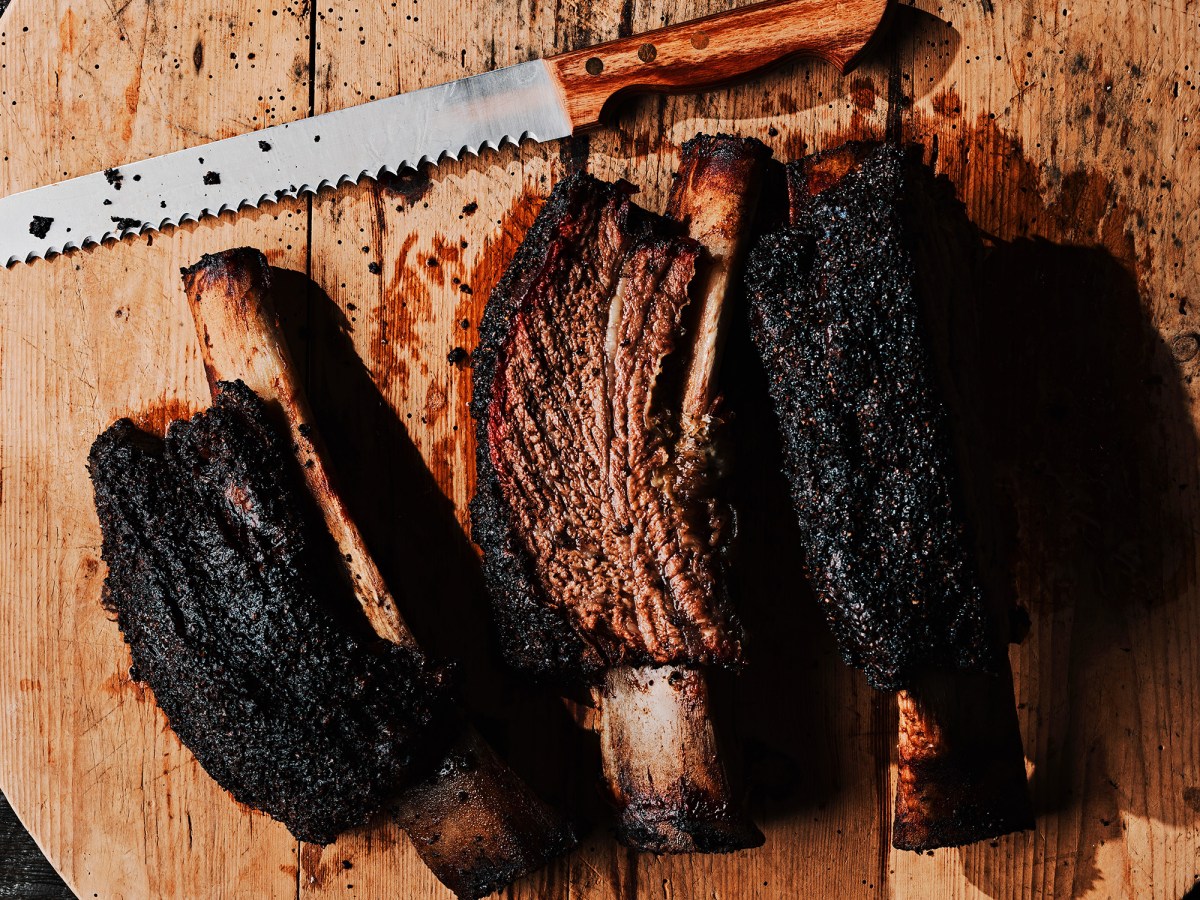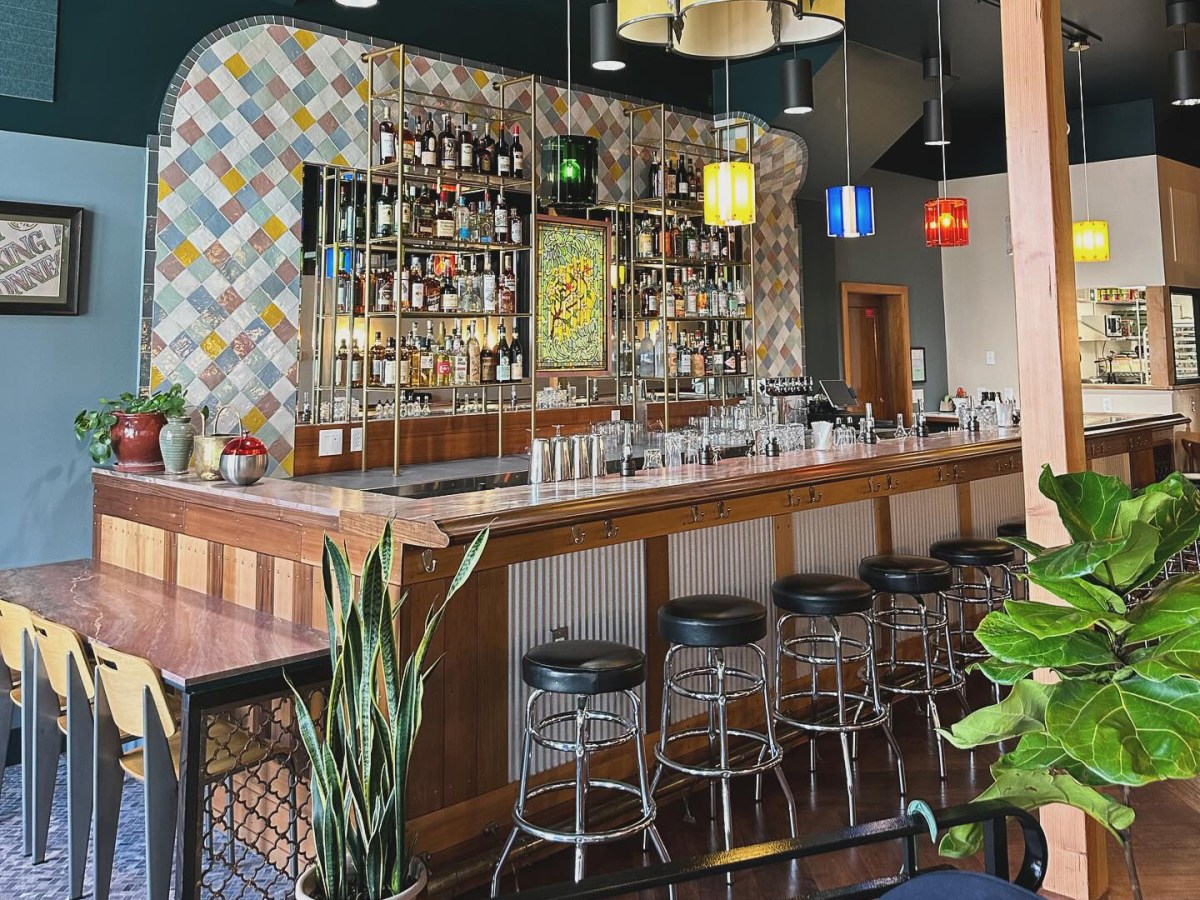For decades now, Thai brunch in Berkeley has meant one thing and one thing only: the delicious but slightly chaotic meal served up for tokens at Wat Mongkolratanaram, a Thai temple in central Berkeley. Tanzie’s Cafe is a cozy new spot that, while much smaller, no doubt, will soon be known for the same, at least the delicious part.
The couple behind this plant-filled, cozy spot met while working together at the Michelin-starred Kin Khao in San Francisco. Krissana “Tanz” Tussanaprasit worked front of house before it earned its Michelin star, and Jezreel “Jae” Rojas, who most recently served as bar manager at the La Cocina food hall in the Tenderloin, worked as a chef.
Tanzie’s Cafe
1453 Dwight Way, Berkeley; www.tanziescafe.com
Open 7:30 a.m. to 3:30 p.m. every day except Tuesday
After Tussanaprasit returned to the Bay Area from Thailand in 2020 following a mid-pandemic trip to help her family open a restaurant, she and Rojas began dreaming about what was next. They collaborated on a vegan popup in the city, but they kept coming back to the idea of a cafe. They liked the idea of being a neighborhood fixture and getting to know their neighbors.
Tanzie’s is not that cafe. It’s only because the space they found had a full kitchen, that what resulted is more of a restaurant. And while it wasn’t at all part of the plan, the reception they’ve received so far has them contemplating starting dinner service, too.
“We fell in love with the space right away,” Tussanaprasit said.
It’s apparent why. The day we visited, it was cold enough that the fireplace was in use. Houseplants hang from the ceilings. There’s a small nook for a larger party in one back corner, and an adjacent room, soon to have a reading room vibe.

Given that they’re in a residential Berkeley neighborhood, Tussanaprasit said it should feel more like you’re going to a friend’s house than a restaurant.
And, as cheesy as that may sound, the way she greets you when you walk in does make you feel that way (in that you instantly want to be her friend).
“It’s homey and cozy and I like the idea of people feeling like they’re sipping coffee in my living room,” she said.
As for the food, Tussanaprasit admitted that brunch is definitely more of an American thing.
And Rojas added that for better or for worse, when it comes to Thai cuisine, sometimes people aren’t so eager to venture beyond what they know: the pad thais and pad see ews and coconut curries.
“We want people to taste a different version of Thai food,” he said. “Sometimes that takes a bit of convincing. There are those who might not come in because they don’t recognize anything on the menu.”
And while they signed the lease fully expecting to have the long-running neighborhood staple Homemade Cafe as a neighbor, they had no idea it would soon close.
“We worried a bit about those who only want pancakes and waffles,” Rojas admitted.

Yet at the same time, they figured breakfast would be a way to ease people into the newness of their food, before they committed to dinner.
They needn’t have worried.
Breakfast and brunch allow them more of an opportunity to be inventive and playful, and marry some Thai proteins—mostly locally raised pork from Devil’s Gulch Ranch in Nicasio—with eggs and rice. Many of their ingredients come from local farms.
Their sausage is a star. Sai oua requires more steps than the already multi-step process for most sausages, marinating the chicken or pork first in a house-made shrimp paste, and then flavoring it with more shrimp paste and lemongrass, birds-eye chiles, makrut lime leaves, basil and cilantro.
And if there’s sausage on the plate, there is also the condiment nam prik noom, consisting of roasted chiles, garlic, shallots and salt. “In Chiang Mai, they’re partners in crime,” Tussanaprasit explained. “They always go together.”

Food from Tussanaprasit’s native Chiang Mai is without that trademark sweet element that Thai food is often known for in the United States, she said.
The popular brunch treat of beignets is on the menu, but their Thai version comes without the customary powdered sugar. Instead, they are served with a cup of sweetened condensed milk for dipping.
While there’s a chia pudding bowl with seasonal fruit, most dishes consist of eggs, protein and rice, though a pea shoot salad, and mushroom and Just Egg dish round out the vegan options.
Lava eggs look as impressive as they sound. A silky, swirly, soft-cooked omelet is draped over a mound of rice. (The couple admit they looked online for inspiration from other Asian cultures to hone their omelet technique.)
For those who want their Thai curries, the sizzling skillets are the way to go. Either pork belly or pork jowl is served with a choice of curries, with rice and a fried egg; though traditional coconut curry, this is not; it is thicker and chunkier and more dense.
Tussanaprasit, 37, first came to San Francisco in 2013 mostly to learn English after getting her bachelor’s degree at Bangkok University. But she fell in love with the Bay Area and stayed.

Tanzie’s owner, Krissana Tussanaprasit, decided to add Thai beignets to the menu, a nod to a morning snack common in Chiang Mai. Credit: Ximena Natera, Nosh/ CatchLight
When the pandemic closed international borders, she took her restaurant experience back home to help her parents and brother open their restaurant in Chiang Mai.
“My parents cook breakfast, lunch and dinner every day,” Tussanaprasit said.
“They cook it fresh and eat it right away. The restaurant dishes were all authentic and local, all dishes my parents liked to make.”
She’s brought many of those recipes back with her. Meanwhile, Rojas grew up in Houston, where Vietnamese and Indian food dominate the Asian food category (Rojas is half-Mexican, half white).
Rojas came up as a chef in Milwaukee. When he felt he could reach no further in his career there, he chose San Francisco, seeking warmer climes as well as different cooking styles.
First at Kin Khao and then later, on the opening team of Nari, chef Pim Techamuanvivit’s second restaurant, Rojas fully embraced Thai cuisine, and the “exposure to these tremendous flavors I hadn’t had before, with techniques all so different than what I was used to.”
He especially appreciates how both Techamuanvivit and Tussanaprasit don’t use recipes or measure, letting their taste memories inform how they season the food.
“In a roundabout way, this has brought me closer to my own culture,” Rojas said about learning to cook more by feel than recipe.
Now at Tanzie’s, he said “Tanzie is really the North Star. Everything that comes out from the kitchen has to be tasted by her.”





